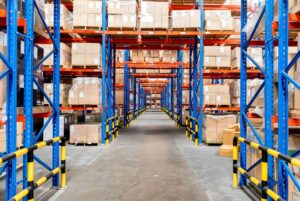In the ever-evolving landscape of global trade and commerce, optimising supply chain operations is crucial for success. Businesses, particularly those with complex logistics requirements, often turn to third-party logistics (3PL) as a valuable solution. In this comprehensive guide, we will delve into the concept of 3PL, explore its key components, and understand how it can revolutionise supply chain management, enhance efficiency, and drive growth.
What is 3PL?
Third-party logistics, commonly referred to as 3PL, involves the outsourcing of logistics functions to specialised providers. These providers, known as 3PL companies or logistics service providers (LSPs), assume responsibility for various elements of the supply chain, including warehousing, transportation, distribution, and fulfillment. By leveraging the expertise and resources of 3PL providers, businesses can optimise their supply chain operations while focusing on their core competencies.
Key Components of 3PL:
To better understand the concept of 3PL, let’s explore its key components:
1. Warehousing and Distribution:
One crucial aspect of 3PL warehousing is the management of warehouse facilities and distribution centres. 3PL providers offer comprehensive warehousing solutions, including inventory management, order fulfillment, and storage optimization. By effectively managing warehouses, businesses can reduce costs, optimise inventory levels, and improve overall supply chain efficiency.
2. Transportation:
Transportation is another critical component of 3PL. 3PL providers have extensive networks of carriers and transportation resources, enabling businesses to tap into efficient and reliable transportation services. From first-mile pickup to last-mile delivery, 3PL providers optimise transportation routes, monitor shipments, and ensure timely and seamless delivery of goods.
3. Freight Forwarding and Customs Compliance:
3PL providers often offer freight forwarding services to facilitate the movement of goods across borders. They have expertise in customs regulations, documentation, and compliance, ensuring smooth international trade operations. By leveraging these services, businesses can navigate complex customs procedures, expedite the movement of goods, and minimise delays or penalties.
4. Technology and Data Analytics:
Technology plays a crucial role in modern-day 3PL operations. 3PL providers leverage advanced software, data analytics, and automation tools to streamline logistics processes, optimise supply chain visibility, and enhance decision-making. Real-time tracking, inventory management systems, and predictive analytics help businesses gain deeper insights into their supply chain, identify areas for improvement, and drive operational efficiencies.
Benefits of 3PL:
Let’s explore the significant benefits that businesses can gain from leveraging 3PL services:
1. Flexibility and Scalability:
3PL providers offer businesses the flexibility and scalability needed to adapt to changing market dynamics. As businesses expand into new markets or experience peaks in demand, 3PL providers can quickly adjust their operations and resources to cater to these changing needs. This flexibility allows businesses to scale up or down without incurring excess costs or infrastructure investments.
2. Cost Savings and Efficiency:
By outsourcing logistics functions to 3PL providers, businesses can benefit from cost savings and improved operational efficiency. 3PL providers leverage economies of scale, allowing businesses to reduce warehousing costs, transportation expenses, and labour costs. Additionally, 3PL providers optimise processes, utilise advanced technologies, and employ industry best practices to drive cost reductions and improve overall efficiency.
3. Focus on Core Competencies:
Outsourcing logistics to 3PL providers enables businesses to focus on their core competencies. By offloading the complexities of supply chain management, businesses can dedicate more time and resources to their primary business activities, such as product development, marketing, and customer service. This focus on core competencies enhances competitiveness and fuels growth.
4. Expertise and Industry Insights:
3PL providers bring specialised expertise and industry insights that businesses can leverage for strategic decision-making. These providers have deep knowledge of logistics operations, regulations, and market trends. By partnering with 3PL providers, businesses can tap into this expertise, gaining a competitive edge and staying ahead of industry changes.
Types of 3PL Providers

In addition to the key components and benefits of 3PL, it is important to consider the various types of 3PL providers available in the market. These can include:
1. Asset-based 3PL:
Asset-based 3PL providers own and operate their own transportation and warehousing assets. This includes owning trucks, warehouses, and distribution centres. These providers offer a comprehensive end-to-end logistics solution as they have full control over the entire supply chain process. Asset-based 3PL providers can provide greater visibility and control over logistics operations, ensuring efficiency and reliability.
2. Management-based 3PL:
Management-based 3PL providers focus on overseeing and coordinating the various components of the supply chain. They act as intermediaries between businesses and transportation, warehousing, and other service providers. These providers specialise in managing and optimising logistics operations, ensuring smooth coordination between different parties involved in the supply chain.
3. Integrated 3PL:
Integrated 3PL providers offer a complete suite of logistics services, including transportation, warehousing, freight forwarding, and customs compliance. They provide a seamless end-to-end solution, consolidating all aspects of the supply chain under one provider. Integrated 3PL providers are capable of handling complex logistics requirements while streamlining processes and improving efficiency.
4. Industry-specific 3PL:
Industry-specific 3PL providers focus on catering to the unique requirements of specific industries. For example, there are 3PL providers specialising in healthcare logistics, retail and e-commerce logistics, automotive logistics, and more. These providers have in-depth knowledge of industry regulations, best practices, and specific challenges, allowing them to offer tailored solutions and drive industry-specific efficiencies.
By understanding the different types of 3PL providers, businesses can choose the most suitable partner based on their unique logistics requirements and industry demands.
3PL Summarised
In today’s fast-paced business environment, optimising supply chain operations is vital for success. 3PL allows businesses to tap into specialised expertise and resources to streamline logistics functions. By outsourcing warehousing, transportation, and other aspects of the supply chain to 3PL providers, businesses can improve efficiency, reduce costs, and focus on their core competencies. Understanding the concept of 3PL and the benefits it offers will empower businesses to make informed decisions and drive sustainable growth.

